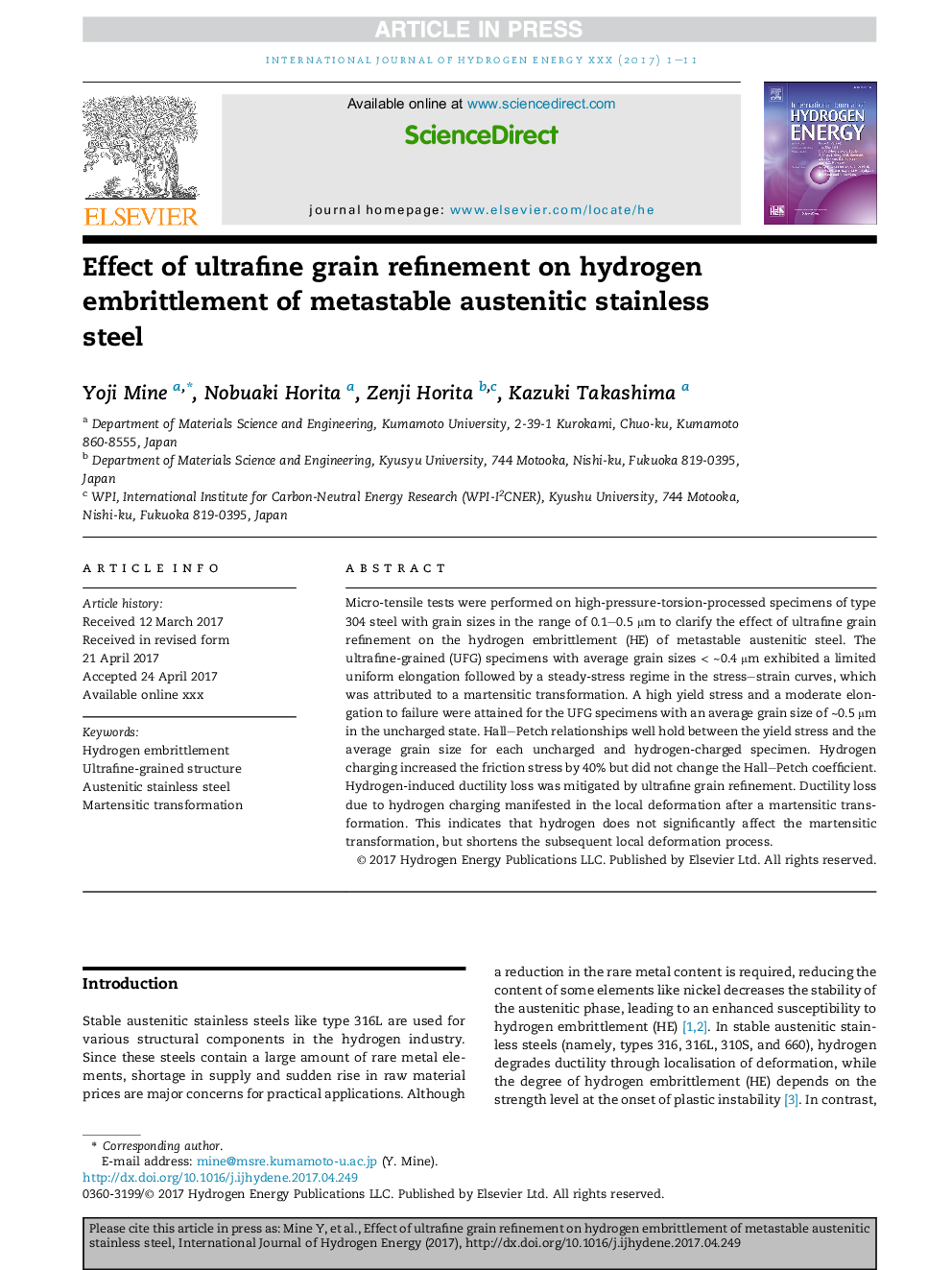| Article ID | Journal | Published Year | Pages | File Type |
|---|---|---|---|---|
| 5147633 | International Journal of Hydrogen Energy | 2017 | 11 Pages |
Abstract
Micro-tensile tests were performed on high-pressure-torsion-processed specimens of type 304 steel with grain sizes in the range of 0.1-0.5 μm to clarify the effect of ultrafine grain refinement on the hydrogen embrittlement (HE) of metastable austenitic steel. The ultrafine-grained (UFG) specimens with average grain sizes < â¼0.4 μm exhibited a limited uniform elongation followed by a steady-stress regime in the stress-strain curves, which was attributed to a martensitic transformation. A high yield stress and a moderate elongation to failure were attained for the UFG specimens with an average grain size of â¼0.5 μm in the uncharged state. Hall-Petch relationships well hold between the yield stress and the average grain size for each uncharged and hydrogen-charged specimen. Hydrogen charging increased the friction stress by 40% but did not change the Hall-Petch coefficient. Hydrogen-induced ductility loss was mitigated by ultrafine grain refinement. Ductility loss due to hydrogen charging manifested in the local deformation after a martensitic transformation. This indicates that hydrogen does not significantly affect the martensitic transformation, but shortens the subsequent local deformation process.
Keywords
Related Topics
Physical Sciences and Engineering
Chemistry
Electrochemistry
Authors
Yoji Mine, Nobuaki Horita, Zenji Horita, Kazuki Takashima,
